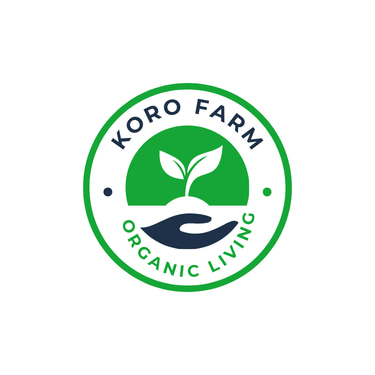What Are Modified or Improved Seeds, and Why Are Traditional Seeds So Important?
In modern farming, much of the conversation revolves around improving efficiency, boosting yields, and making crops more resistant to environmental challenges. One of the ways this is achieved is through the development and use of modified or improved seeds. But what exactly are these seeds, and how do they differ from traditional seeds? Let’s dive into this crucial topic and why it matters for sustainable agriculture.
Alfred Okello
12/9/20224 min read


In modern farming, much of the conversation revolves around improving efficiency, boosting yields, and making crops more resistant to environmental challenges. One of the ways this is achieved is through the development and use of modified or improved seeds. But what exactly are these seeds, and how do they differ from traditional seeds? Let’s dive into this crucial topic and why it matters for sustainable agriculture.
What Are Modified or Improved Seeds?
When we talk about modified or improved seeds, we refer to seeds that have been enhanced to improve their performance, usually in terms of higher yields, better resistance to diseases and pests, adaptability to varying climates, or even increased nutritional value. These seeds generally fall into two main categories:
1. Hybrid Seeds
Hybrid seeds are created through a process called cross-breeding, where two different plant varieties with desirable traits are combined. The aim is to produce a plant that benefits from both parent varieties, giving farmers seeds that yield better crops, are more resistant to disease, or thrive under challenging environmental conditions.
While hybrid seeds can significantly boost crop productivity, they often come with a caveat: they’re not reliable for replanting. If farmers save seeds from hybrid crops and plant them the following season, the offspring may not inherit the same desirable traits. This forces farmers to purchase new hybrid seeds each year, making them dependent on seed companies.
2. Genetically Modified (GM) Seeds
Genetically modified seeds go a step further. Unlike hybrids, which result from natural cross-breeding, GM seeds are created by directly altering the DNA of the plant. Scientists insert specific genes from other organisms to make the crops more resistant to pests, tolerant to herbicides, or able to withstand environmental stress like drought.
Though GM seeds have their advantages, they are controversial. Critics argue that they can harm the environment, reduce biodiversity, and leave farmers dependent on large corporations. Regulations around GM seeds are often stringent, as concerns over health, environmental impact, and long-term sustainability continue to be debated.
The Importance of Traditional Seeds
Now that we understand what modified and improved seeds are, let’s talk about why traditional seeds remain vital—especially for projects like Koro Farmstay.
Traditional, or heirloom, seeds are varieties that have been passed down through generations, often adapted to specific local climates and farming practices. These seeds are typically not altered through genetic modification or hybridization, and one of their greatest advantages is that they can be replanted year after year. This not only saves farmers from the recurring costs of purchasing new seeds each season but also preserves genetic diversity.
At Koro Farmstay, our mission revolves around protecting traditional seeds and reviving the farming knowledge that northern Uganda lost during years of conflict and displacement. Why does this matter?
Biodiversity: Traditional seeds preserve the rich genetic diversity of crops, ensuring that future generations have access to a wide range of plant varieties, each with unique qualities that can withstand different climates and pests.
Sustainability: Unlike hybrid or GM seeds, traditional seeds can be replanted, allowing farmers to be self-sufficient. This practice aligns with our commitment to promoting organic farming and reducing reliance on external inputs.
Cultural Heritage: In Acholiland, where Koro Farmstay is based, traditional seeds are part of the cultural heritage. By reintroducing these seeds, we’re not only preserving farming techniques but also reconnecting communities with their agricultural roots.


Why We Choose Traditional Seeds at Koro Farmstay
At Koro Farmstay, we believe that the future of farming lies in sustainability and self-reliance. Our focus is on creating a system where farmers can cultivate crops that are free from genetic modification and chemical inputs, while also having the ability to save seeds for the next season.
By focusing on traditional seeds, we aim to help local communities:
Protect their land from the overuse of chemicals that often accompany GM and hybrid crops.
Relearn the farming practices that sustained their ancestors for generations, providing not only food security but also a sense of pride and self-reliance.
Promote eco-conscious living, ensuring that farming practices work with nature, not against it.
Conclusion
While modified and improved seeds have played a significant role in advancing modern agriculture, they are not without their drawbacks. At Koro Farmstay, our approach to farming focuses on the long-term benefits of protecting traditional seeds. We believe that preserving biodiversity, supporting local communities, and promoting sustainable, organic farming practices are key to a healthier and more resilient future for northern Uganda.
As we work to reverse the loss of traditional seeds and farming knowledge, we invite you to join us in this journey toward sustainable agriculture, where seeds can be replanted, communities can thrive, and the environment can flourish.






Sustainability
Contact us
Sections
info@korofarmstay.life
© 2024. All rights reserved.
subscribe
